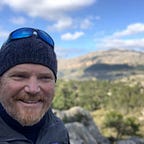A systems approach to the SDGs & the need to reframe SDG8
A conversation between Fritjof Capra and Daniel Wahl
On November 17th 2019, I had the wonderful opportunity to be a guests on a webinar offered to the participants and alumni of Fritjof Capra’s amazing ‘Capra Course’. The course offers people from all over the world an opportunity to learn from one of the great visionary thinkers of the last 50 years who has done more than most to invite humanity into changing our way of seeing so we may find wise pathways out of the mess we have got ourselves in.
This is the third conversation Fritjof and I are offering to his growing group of Capra Course alumni. The first conversation (in 2017) was hosted by Simon Robinson and we addressed how important Fritjof’s work has been for people working on regenerative development. We explored the significance of the ‘Earth Charter’, explored ‘regeneration and the systems view of life’ as well as how might we involved the business community in regenerative practice through ‘meaningful disturbances’?
The second conversation (in 2018) was hosted by Simon again as a collaboration between Capra Course and Gaia Education. It focussed on systemic change through addressing issues such as the SDGs, transforming our economic systems and the crucial role of education in the now urgently needed transformations ahead.
Here are some excerpts from our recent conversation — the third webinar — that might motivate you to take the time to watch the whole conversation:
Fritjof: “global problems are systemic problems. They are all interconnected and interdependent. Therefore the SDGs also need to be seen as a systemic set which is interconnected and interdependent. So you can’t deal with them successfully in isolation. …”
Daniel: “reporting back from a meeting in NY at the UN suggested that a lot of countries reported that singular focus on on only one SDG actually fed back negatively on the implementation of other goals” …
Fritjof: “A fundamental dilemma underlying all of the world’s most pressing problems is the obsession, or let’s say the illusion, of perpetual quantitative growth on a finite planet. This is pursued virtually by all of our politicians and economists. It is a real detachment from reality, the ecological reality! This seems to be enshrined in SDG 8 …”
Daniel: “there is a structural dysfunctionality in our economic system that drives us to exploit people and planet … it is a zero-sum game that needs losers in order for there to be winners…”
Fritjof: “… we need to ask, what should grow! … we need to qualify growth! …?
Daniel: “We need to reframe SDG8 as ‘Good Work and Qualitative Growth”. That alone would start a conversation about what kind of growth we want. … of course we want forests to grow and healthy grasslands to grow … we need to pay attention to the linguistic framing of the goals …
Fritjof: “degrowth … It doesn’t sound right to me. … when you actually read what the Degrowth movement are saying, it is all about qualitative growth … we need to work with them?” … “we know how to create a much more sustainable world, so why don’t we do it? … the role of ethics and values … the importance of the ‘Earth Charter’ …?
Daniel: “I completely agree with you Fritjof. We need to start at the deeper, upstream end of what motivates people. … at the deeper level of values and ethics and the underlying narrative about whether as individuals we actually can change things, which of course we can, and why we want to change things … I am a great fan of the Earth Charter … to at least embrace the Earth Charter at the UN level as a non-binding agreement is highly overdue …
… one of the problems with SDG implementation is that about 70% of the energy seems to be going into reporting at national, regional and voluntary city level and only 30% of the effort is actually going into moving things along and working on implementation on the ground … it should be the other way around …”
Fritjof: “… regenerative growth seems a good term too. Do you use that?”
Daniel: “I use regenerative development as the centre of a lot of what I do. Let me just share my screen.”
“… working regeneratively is informed by the systems view of life. So Fritjof, your work is centrally important for having offered a deeper understanding of how we can work regeneratively.” …
… “the essence of working regeneratively is that it has to be place-sourced … scaling-out rather than scaling-up implementation” …
[… the questions from participants were amazing as well, so do take the time to have a look at this webinar which is now available to all for streaming on the Vimeo page of the Capra Course.]
—
If you like the post, please clap AND remember that you can clap up to 50 times if you like it a lot ;-)!
Daniel Christian Wahl — Catalyzing transformative innovation in the face of converging crises, advising on regenerative whole systems design, regenerative leadership, and education for regenerative development and bioregional regeneration.
Author of the internationally acclaimed book Designing Regenerative Cultures
…
Also check out this important video by my friend and mentor Fritjof Capra:
